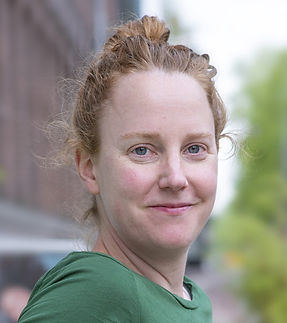

Critical Social Policy is a highly ranked, peer reviewed journal that provides an international forum for advocacy, analysis and debate on social policy issues. Published quarterly by Sage, it aims to develop an understanding of welfare from socialist, feminist, intersectional, anti-racist and radical perspectives.
CSP publishes original research and critical analysis in any area of social policy that matches the Aims & Scope of the journal. Articles on social policy from all international contexts are welcome.
The following types of papers may be submitted for consideration:
Full articles: Articles (6,000 – 8,000 words including abstract, keywords, references and endnotes) may either report original research, or review and critically analyse aspects of social policy which are within the journal’s aims and scope. All articles are expected to be theoretically informed. Articles reporting original research must include an accessible overview of the research methods and analysis used, including a clear consideration of ethics in practice during the research process, and, where possible, information regarding ethical approval.
Living Activism contributions: The editorial collective of CSP invites activists, advocates, practitioners, and users of service groups to submit contributions about how they work to end social injustice. Members of the CSP Editorial Collective are happy to discuss and offer advice on ideas for papers, particularly for inexperienced and non-academic contributors.
Commentaries: Commentaries (3,000 - 4,000 words, including abstract, keywords, references and endnotes) differ from longer articles in that they do not usually report original research and they must be topical, i.e. they should relate to a change in policy or be concerned with a policy which has recently been newsworthy. Commentaries may be used to offer service user or frontline practitioner perspectives on the implementation of social policies. Commentaries may also be used to challenge or debate positions adopted by authors of recently published CSP articles; where this happens the authors of the original article will normally be offered a right of reply. Commentaries from all national contexts are welcome.
Themed Issues: CSP normally publishes one themed issue per year/volume on a topic which contributes to the journal’s overall remit. Calls for proposals from prospective editors external to the editorial collective will be made via an announcement on the website and/or in the published journal. For details and guidance on submitting a themed issue proposal click here. Potential themed issue editors may contact the Editorial Coordinator, Lizzie Ward at articlescsp@gmail.com for further information and an update on future dates.
Editorial Collective
All manuscripts accepted by CSP are double-blind peer reviewed by three members of the Editorial Collective (EC). One EC member will be assigned as convenor of the manuscript and will communicate decisions directly with corresponding authors 2-3 weeks after an editorial board meeting.
International Advisory Board
Donna Baines, University of British Columbia
Jacqueline Heinen, University of Versailles, France
Fabain Kessl, University of Wuppertal, Germany
Gianinna Muñoz-Arce, University of Chile, Chile
Micol Pizzolati, University of Bergamo, Italy
Pauline Stoltz, Aalborg University, Denmark
Hong-zen Wang, National Sun Yat-sen University, Taiwan
History
The seeds of CSP were sown in July 1979 when social work and social policy activists Gordon Peters and Bob Deacon met informally at the Social Policy Association conference at Girton College in Cambridge. Dissatisfied with the lack of opportunity for airing socialist and radical perspectives in mainstream social policy journals, which had been intensified by the election of the first Thatcher government in May of that year, they subsequently invited a group of leftist social policy teachers and activists to join in the project of a ‘journal of socialist theory and practice in social welfare’.
A more formal meeting was scheduled in April 1980, during which the journal was formally named Critical Social Policy and it was unanimously agreed to run it as an Editorial Collective. The first issue of CSP appeared in the summer of 1981 and until 1985 the journal was entirely self-published. Since 1994 the journal has been published by Sage.
In November 1980 the first CSP conference Crisis in the Welfare State was held at Queen Mary College (now Queen Mary University) in East London. More than 1,000 people attended the conference, including plenary speakers Mary McIntosh, Peter Townsend, David Blunkett and Ian Gough, with a Saturday evening concert featuring Roy Bailey and Leon Rosselson. In April 1982 the second conference was held at Sheffield City Polytechnic (now Sheffield Hallam University) at which Stuart Hall gave a rousing critique of the Scarman Report on the Brixton uprising. Over the next ten years, seven more weekend conferences were held, culminating in a joint conference in London in 2000 with the Social Policy Association entitled In and Beyond New Labour. In 1996 Critical Social Policy: A Reader (edited by David Taylor) was published by Sage, republishing twelve seminal articles on anti-discriminatory analysis of social policy spanning the years 1981 to 1994.
From the start, the EC’s commitment to critical discussion of policy questions raised by the women’s, anti-racist, disabled people’s, LGBT+ and labour movements was explicit. CSP has published 28 themed issues to date, the first a ‘special feminist issue’ in 1985 coordinated by Fiona Williams and more recently a virtual themed issue on Racism and Anti-Racism.
Signalling a stronger commitment to supporting and giving voice to activist organisations and struggles, from 2019 the CSP Solidarity Fund began awarding small grants to grassroots organisations. 2020 saw the publication of a special themed issue on Living Activist Struggles to End Social Injustice coordinated by Suryia Nayak, and 2024 saw the launch of a dedicated ‘Living Activism’ section of the journal which invites activists, advocates, practitioners, and users of service groups to submit contributions about how they work to end social injustice.











_JPG.jpg)









